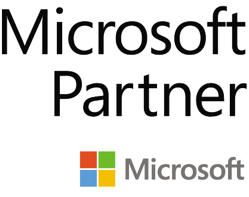SNP uses a wide variety of physical, infrastructure & operational controls to help secure your infrastructure & applications.
SNP, a trusted Microsoft Security Services Provider - offers comprehensive cybersecurity services for enterprises, fortified by our expertise in Security Copilot, Microsoft Sentinel, and the Microsoft Defender family of products. From architecture design to ongoing management, we ensure robust security solutions.
As an active member of MISA (Microsoft Intelligent Security Association), we integrate cutting-edge technologies to safeguard your digital assets with our expertise and innovative solutions.
Our Approach to Cybersecurity
We follow a structured, four-stage approach to cybersecurity, ensuring comprehensive protection and resilience for your organization:
Stage 1: Enterprise Cybersecurity Posture Review and Analysis
We begin by thoroughly reviewing and analyzing your organization’s current cybersecurity posture, identifying vulnerabilities, risks, and areas for improvement.
Stage 2: Cybersecurity Maturity Score and Design Roadmap
Based on the initial analysis, we assess your cybersecurity maturity and develop a strategic roadmap tailored to elevate your security practices, aligning with industry best practices and business objectives.
Stage 3: Cybersecurity Design Implementation
In this stage, we implement the designed cybersecurity measures, ensuring that your organization has robust protection in place, from network security to data protection and threat management.
Stage 4: Managed Extended Detection and Response (MXDR)
Our services extend into continuous monitoring and management of security threats with Managed Extended Detection and Response (MXDR). This proactive approach helps detect, analyze, and respond to emerging threats in real-time, providing ongoing security support and peace of mind.
Each stage is carefully tailored to meet your organization’s unique needs, ensuring a thorough analysis, strategic planning, and seamless execution of cybersecurity measures.
Enterprise Cyber Security Services
Enterprise Cyber Security Framework
At SNP, we understand that every enterprise has unique cybersecurity needs. Our Enterprise Cyber Security Framework provides a comprehensive and tailored approach to establishing a robust cybersecurity posture for your organization. From risk & security posture assessment to architecture design policy development and implementation, we work closely with you to ensure that your enterprise workloads are protected against evolving threats
Enterprise Security for M365 Copilot
Enhance the security of your Microsoft 365 environment with SNP's Enterprise Security for M365 Copilot. Our expert guidance ensures proactive risk mitigation and robust protection of your critical data, empowering you to maintain control over security and compliance as you integrate AI technologies. We prioritize essential elements including data loss prevention (DLP), retention policies, data classification and labelling, eDiscovery, and the evaluation of current data sharing practices in conjunction with role-based access controls. With SNP's support, you can confidently navigate the introduction of Microsoft 365 Copilot to your users while safeguarding your organization's data integrity and regulatory adherence.
Managed XDR with Security Copilot & Sentinel
Empower your organization's security with SNP's Managed Extended Detection and Response (XDR) implementation powered by Security Copilot & Sentinel. Leveraging Microsoft Security Copilot, we conduct in-depth analysis, providing valuable insights into your security environment. Our customized approach ensures seamless implementation and integration, delivering comprehensive protection against cyber threats. Once you have XDR Solution with Microsoft Security Copilot & Sentinel is deployed, you now enabled with advanced generative AI solution which integrates detection, investigation, and response capabilities to strengthen the security operations.
Data Security with Microsoft Purview
Ensuring a secure and compliant data environment, SNP empowers your organization to safeguard sensitive information, comply with regulations, and derive actionable insights from your data assets using Microsoft Purview, backed by SNP's expertise in data security. Our comprehensive approach to data security includes data classification, risk assessment, and ongoing monitoring to identify and mitigate potential threats. With SNP and Microsoft Purview, you can maintain the confidentiality, integrity, and availability of your data while meeting regulatory requirements.
Managed XDR as a Service - MSSP
Entrust your cybersecurity to the experts with SNP's Managed Security Services Provider (MSSP) offering, powered by our advanced XDR capabilities. Our team of security professionals provides round-the-clock monitoring, threat detection, and incident response to protect your organization from cyber threats. With SNP as your MSSP, you can focus on your core business while we handle the complexities of cybersecurity, ensuring that your enterprise workloads remain secure at all times.
Why SNP for Cyber Security Services
Expertise
Our team of cybersecurity experts boasts years of experience and in-depth knowledge in the field, ensuring that you receive top-notch guidance and support.
Custom Solutions
We understand that every enterprise has its own set of challenges and requirements. That's why we offer personalized cybersecurity solutions designed to address your specific needs and objectives.
Cutting-Edge Technology
Stay ahead of emerging threats with our cutting-edge cybersecurity technologies and tools. We leverage the latest advancements in the industry to keep your digital assets secure.
Continuous Support
Our commitment to your cybersecurity doesn't end after implementation. We provide ongoing support and monitoring to ensure that your defences remain strong in the face of evolving threats.


